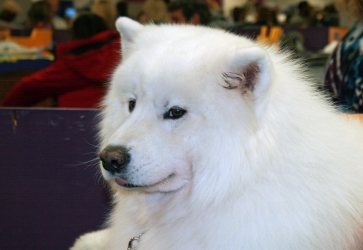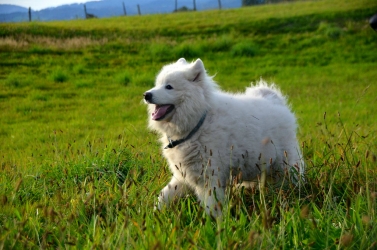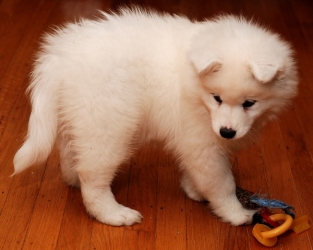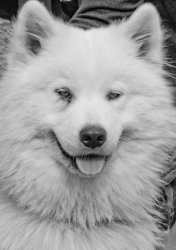Samoyed
Samoyed Behavior and Temperment
| Indoor Activity | Outdoor Activity | Vigor | Consistant Behavior |
| Dominance Strange Dogs | |
| Territorial | |
| Good With Children | |
| Good With Strangers |
Samoyed History
With ancient origins, the Samoyed is believed to have maintained its pedigree since prehistoric times. In 1889, explorer Robert Scott who, returned from a polar expedition with the first Samoyeds to set foot in Europe. These are the dogs who accompanied the nomadic Samoyedic tribes of Siberia, for which the're named. These the dogs sacraficed their lives during explorer Robert Scott's polar expeditions into the polar region. Samoyeds today, continue to live in the region of the North Pole. The unusual beauty of this Samoyed spured great interest among the English, who soon began to breed them. Even today, the finest Samoyeds come from England.Samoyed Description
The Samoyed serves as a herder, a watchdog, a sled dog, a hunting dog, and is used for fishing as well. When hunting walrus in the harsh Arctic climate, the Samoyed disappears entirely in the snow, where he waits hidden for hours to catch his prey.The Samoyed has a strong, muscular body, straight, sturdy legs, magnificent white fur which protects him from the cold, and erect ears on a powerful head. The Samoyed is built to withstand the icy air, even for entire nights. Samoyeds have a shaggy, long coat over a thick undercoat and feet covered with thick tufts of hair, all of which form a screen protecting him from the snow. The Samoyed has a magnificent white or cream-colored coat, his Asiatic face; a mouth that always seems to be on the verge of smiling, and qualities of courage and endurance. Samoyeds ranges in height from 21 to inches.




